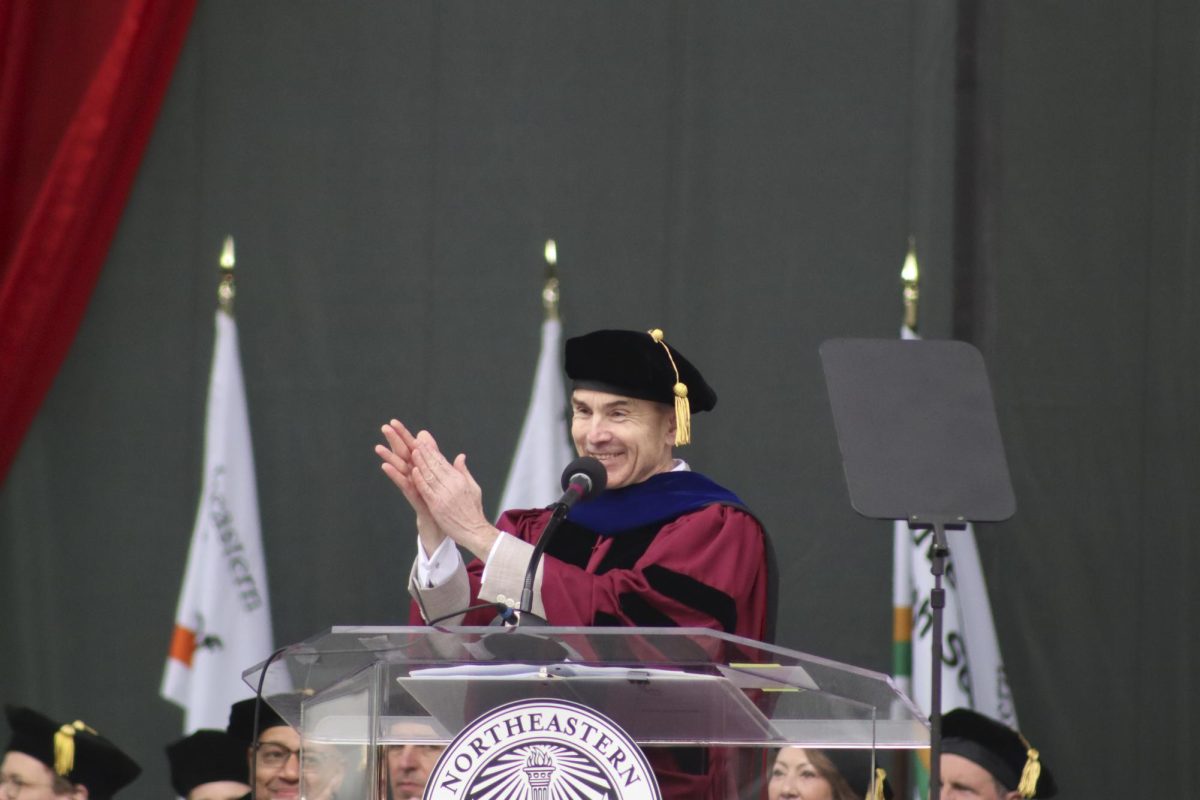by Katie Robidoux, News Correspondent
President Aoun announced at yesterday’s Faculty Senate meeting that Northeastern University’s faculty handbook will be changing in the near future to implement more relevant policies and improve its usefulness for the university community as a whole.
Aoun presented an overview of improvements and changes in the university. In his speech, he said it is important for the university to continue to innovate and evolve, otherwise it will fall behind other schools who are trying to do the same.
“If we stay still, other systems are going to be ahead of us,” Aoun said.
One of the key changes that will contribute to the university’s development is the updating of the faculty handbook, Aoun said.
“There is a consensus involving the board, administration, the Faculty Senate, the deans and everyone that we need to work on our faculty handbook. The faculty handbook is a tool that is outdated and we all agree that we have to work on that,” Aoun said. “If you can spend time reading it and find your way through this maze, I commend you because it’s not consistent.”
The faculty handbook was last updated in 2000. There are many modifications that need to be made due to the array of changes that the university has undergone in the past 10 years, Aoun said.
For example, changes to the handbook will reflect the recently-restructured colleges. The handbook only mentions the College of Arts and Sciences prior to the restructuring last school year, when it and the College of Criminal Justice were split into three separate colleges. The sections that refer to the old college are now irrelevant, Aoun said.
Michael Sabo, vice president of academic affairs for the Student Government Association, said he agrees the handbook is “grossly outdated.” One of the main functions of the Faculty Senate is the work they do with the handbook, and one of the major projects they are working on this year is trying to update it, Sabo said.
“The administration is responsible for implementing policy in a lot of ways, whereas Faculty Senate is kind of dealing with the official side of things, such as getting it into the handbook and getting it out to teachers,” he said.
Although the student handbook and the faculty handbook are two different documents, there is some overlap between the two. The academic policies and procedures section is present in both.
Sabo is working on having a section added to the student and faculty handbook for defined academic penalties.
“Tufts University has a system where there are basic defined offenses for basic academic penalties,” he said. “The first time you plagiarize a paper, you might get a zero on the paper, second time you fail the class, third time you get kicked out of school. Right now we don’t have anything like that. There’s no general uniform system. That’s something I’m working on.”
Although changes to the faculty handbook will be underway in the coming weeks, there is no way to know when the changes will be complete. Sabo said it might be a work in progress for the remainder of this academic year.
“It’s a long, cumbersome process,” Sabo said.








